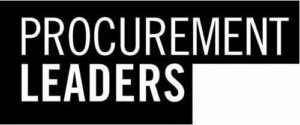
At the recently held America’s Congress 2016, I had the good fortune of chairing a couple of roundtables around the perennial favorite topic of Talent in Supply Management. Specifically, around managing the unique talent issues on this now fastest growing segment of the workforce and secondly on how the transformation of skillsets is affecting talent requirements. Both topics drew a large and energetic audience to these sessions. The room was abuzz with Procurement Leaders (pun intended) milling about and sharing their experiences informally and learning from their peers. It was good to see this type of networking both before and after the sessions at this conference.
The first roundtable on managing the Millennials was off to a rapid fire start with participants providing a quick intro and jumping into wha’s important. An interesting thought from a CPG executive was made when she said that since we realize that our current and future buyers and customers are and will be Millennials, we definitely want to attract similar talent. This generational common denominator was being capitalized upon in a smart manner that was helping them identify and execute on ideas faster than they would have otherwise and compared to their competitors, or they hoped.
There was a former IBM executive amongst us and he mentioned how they were focused on opening new office centres in booming cities all in the name of securing top talent. Everywhere from NYC, to London and Shanghai with Buenos Aires and Mumbai thrown in for good measure was just a short list of offices where they had Millennials working. And not just working on stodgy old programs, but in exciting platforms like cloud-centirc technologies (think Watson) and cutting-edge analytic tools. Another game changer with this generation was how they all are allowed to bring their own devices to work, i.e. smart phones and tablets and IBM would have to figure out the security and connectivity protocols. Not to mention, these Millennials don’t want to use legacy tools and apps you may have, but instead they prefer Dropbox, Slack and WhatsApp. Yes indeed, the working world is changing and adapting a lot more from my heydays of working in the late 90’s!
Flexibility in the workplace was a recurring theme from the participants at the table. A leading global beverage company sends their talent from South America to the US and vice versa and they were proud that their team members didn’t miss a beat in the process. They had ping pong tables and were provided Fitbits to keep track of their health and recreation regardless of where in the world they may be. The concept of hot-desking is also quite in vogue as several companies cited how that helped increase productivity and lower costs too.
The mentoring and career path component was brought up towards the end when the roundtables shared their discussion with the group at large. The Millennials that happened to be participating were quick to mention that they are independent and value hard work with positive feedback. They said to not consider them fragile tea cups but strong assets that use their tech savvy and acute social media awareness skills for both professional and personal benefits.
The second session provided an equal amount of animated conversation where we dug into how to attract, develop and grow the right skillsets to move forward. What came to light was the increased significance companies are placing on the process of successfully on-boarding talent. Preceding this of course should be a robust hiring process so they can move on bringing in talent with a smile on their face and immediately pairing them with internal partners to help the cultural assimilation. The decreased tenure of Millennials at their employers has prompted organizations to help reduce the learning curves and get them integrated and adding value.
The value of rotating Procurement professionals across the function and throughout the organization was discussed at length. An Australian based global manufacturing Procurement Leader stated that his group is now perceived as a Talent Incubator throughout the enterprise. Talent from other functions seek to come into Procurement just as much as Procurement talent is pulled into other roles. As a result, their HR group liaises closely in developing Hi-Po lists and managing their talent pipeline. They find it effective to have these Hi-Po’s paired with an Executive Sponsor to facilitate their career growth and development.
Of course I’d be remiss if I didn’t mention that in the debrief afterwards for this session almost every table stressed that work life balance was of utmost importance. This can be provided in a myriad of ways, i.e. from letting their people go to the gym at whatever time they pleased to covering transportation costs when they work late. However, what worked the best was when the employees felt that their employers were investing in them in the form of trainings in the function to exposure into other functions and learning from stakeholders, all the while solidifying their collaboration and influential skills.
And last but certainly not least was the interest on compensation. It was amusing to see one table categorically state that they didn’t address the money question and it was by design. As for the others, it was brought up and views varied from recognition to dismissal in terms of how much of a factor this was in attracting and retaining top talent. Based on the input, it seems personal perceptions and company culture played a key role in how aggressive they were when it came to coughing up the big bucks.
Point stressed overall was that the pool for top talent is growing more scarce by the day and we compete with other functions in attracting these talented individuals to our world. There was unanimity on the notion that loyalty to a company was replaced with loyalty to personal performance and self-branding, and compensation played a minimal part either way. Excellent discussions, invigorating participants and a great experience overall!
